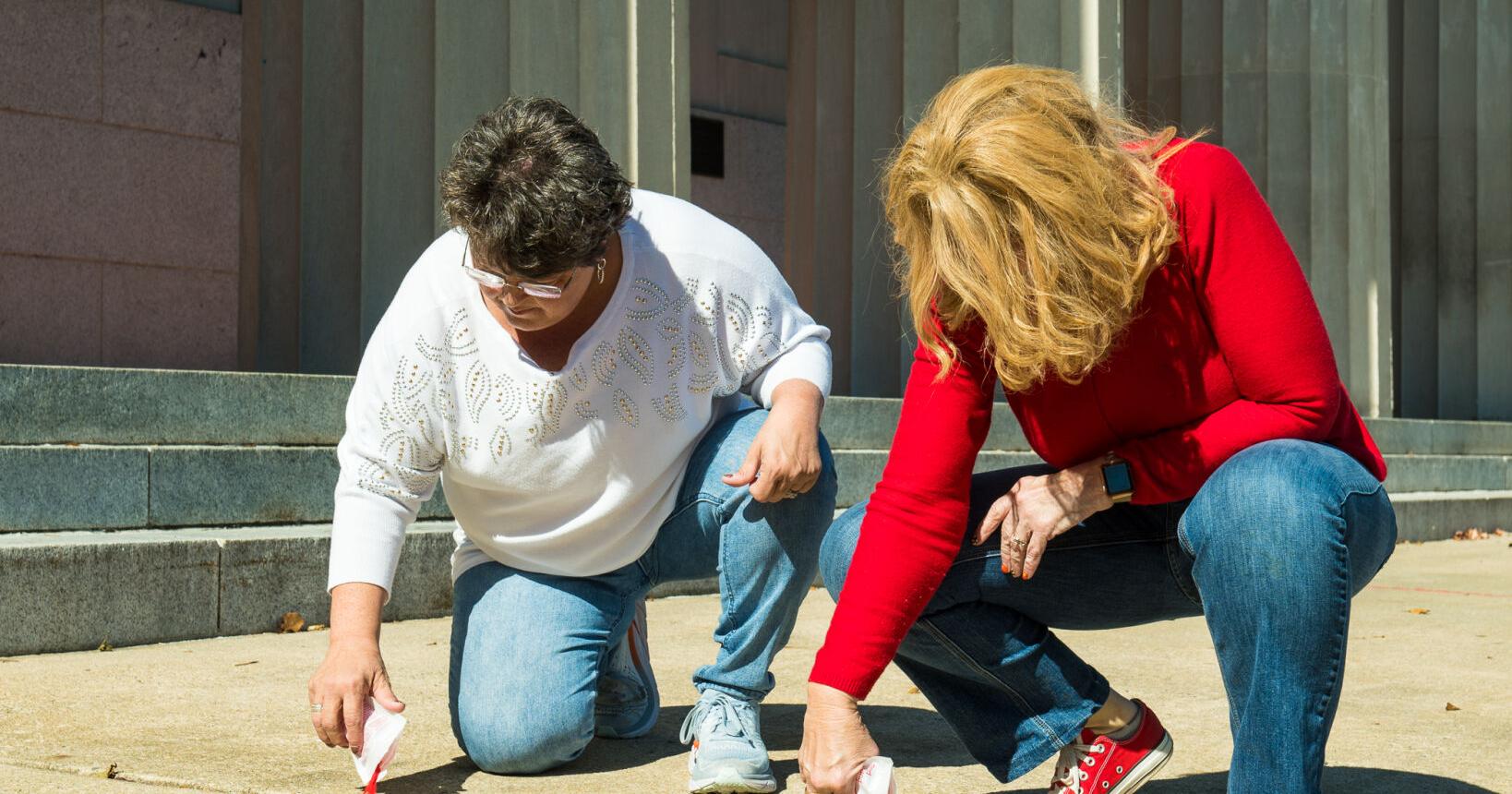Rotary brings awareness to human trafficking | News | lincolntimesnews.com

LINCOLNTON – Like so many insidious crimes, human trafficking often happens in the shadows or is difficult to identify. In 2020, 260 cases of trafficking were reported to the National Human Trafficking Hotline, ranking North Carolina number nine among the 50 states in cases reported, according to the N.C. Department of Administration. The true number of cases in North Carolina is likely much higher. A rally, organized by Rotary clubs of Denver/Lake Norman and Sherrill's Ford Terrell was held on the old Lincoln County Courthouse lawn on Saturday to bring awareness to human trafficking.
“From my own personal experience as a child, I knew that domestic violence and human trafficking were real,” Tammy Mosteller who is the district governor for Rotary District 7670 said. “It was very strong in my heart that I wanted to do something. When I was elected as governor, there was no question that human trafficking was going to be a project that I'd do for the district.”
Once elected as governor, Mosteller researched projects for human trafficking and ran across the Red Sand Project which was started by Molly Gochman to raise awareness for those affected by modern day slavery by filling sidewalk cracks with red sand and documenting it through social media using #RedSandProject.
“By filling the cracks with sand, it symbolizes those who've fallen through the cracks,” Mosteller said. “It brings awareness to human trafficking. It's happening right here under our noses. Human trafficking is not just someone being snatched and hauled to another country. It's right here in Lincoln County and western North Carolina. We can't do anything about something if we don't have the awareness of it. That's why it was important to me.”
Not many people feel like it's prevalent around here, Sherry Reinhardt, the director for the Lincoln County Child Advocacy Center added, but it is.
“Human trafficking of children or adults means that they are being sold for goods or services,” she said. “When you think about other issues in our community, like homelessness, sometimes if we're interviewing a child, we'll ask them who knows about this. They'll say, ‘I told my mom, but we lived in a car and now we have a house and she doesn't want me to say anything because we'll have to live in a car again.' People don't realize that taking homemade pornography of your own children when you're addicted to drugs is more prevalent now. We don't think about that, but it happens a lot. Most of the time, the kids don't even realize what's happening.”
Parents should be asking their children questions such as where you are going, who are you going to be with, how long will you be there and what are you going to do, according to Reinhardt. This should be done for online access as well, who are you talking to, how do you know them, how long have you been talking to them, do you know where you live, do they know where you live?
“Ask the same questions that our parents used to ask us when we went out,” she said. “We need to be asking that. We need to be asking that for gaming as well. That's going to be one of our biggest deterrents – asking questions. You need to have passwords to your kids' social media too. It's a job.”
Mosteller said that her children used to get so mad at her when she asked those questions and made them give her their passwords.
“Now they thank me for it,” she said. “We have to be present with your kids and talking with them.”
This “Eyes on Trafficking” story is reprinted from its original online location.
 ABOUT PBJ LEARNING
ABOUT PBJ LEARNING
PBJ Learning is a leading provider of online human trafficking training, focusing on awareness and prevention education. Their interactive Human Trafficking Essentials online course is used worldwide to educate professionals and individuals how to recognize human trafficking and how to respond to potential victims. Learn on any web browser (even your mobile phone) at any time.
More stories like this can be found in your PBJ Learning Knowledge Vault.
EYES ON TRAFFICKING
This “Eyes on Trafficking” story is reprinted from its original online location.
ABOUT PBJ LEARNING
PBJ Learning is a leading provider of online human trafficking training, focusing on awareness and prevention education. Their interactive Human Trafficking Essentials online course is used worldwide to educate professionals and individuals how to recognize human trafficking and how to respond to potential victims. Learn on any web browser (even your mobile phone) at any time.
More stories like this can be found in your PBJ Learning Knowledge Vault.
